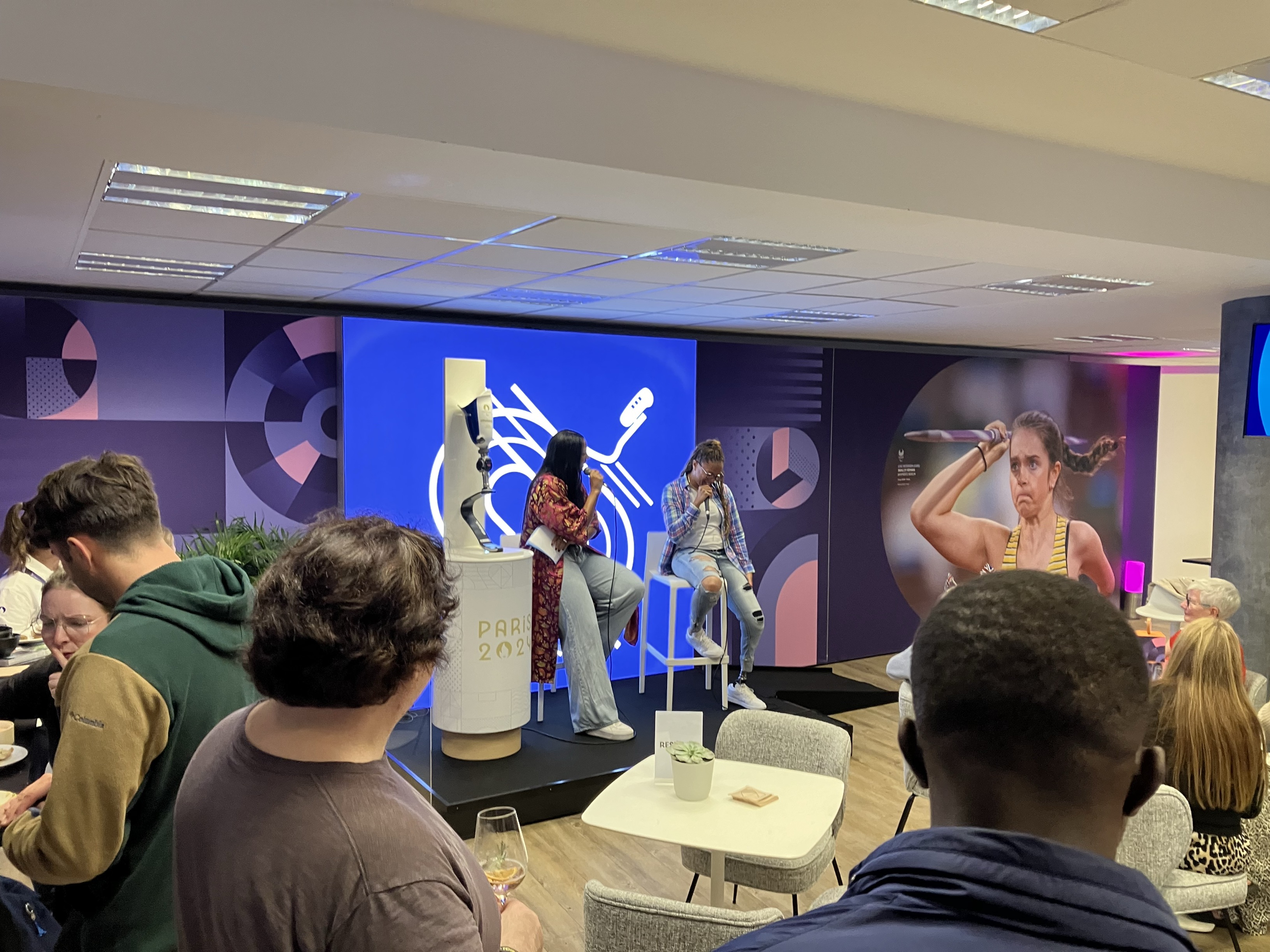Paris Paralympics - A reflection of performance on and off the field, by Ben Hardman GDI Hub Head of Innovation
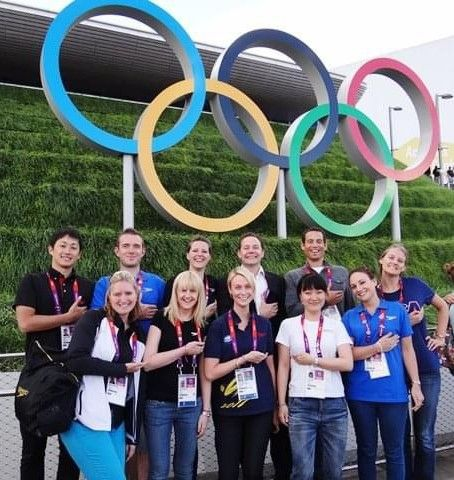
Image with Ben and 10 colleagues at London 2012 under Olympic rings
In 2012 I was fortunate to experience the London games up close, as part of a team creating the performance clothing and equipment used by Olympians and Paralympians. We worked one-to-one with the swimmers to make sure that they were fully equipped with the best gear - designed to squeeze out every possible drop of performance in the blink-and-you-miss-it race.
The London Games felt very special, I could sense a pivot in the way that Paralympic sport and disability more generally, was being presented to me. The London Paralympics had attitude, it was edgy, humorous, honest, ballsey, super-human - this drew me in to a culture that I hadn’t really engaged with before, and I loved it. As a designer and engineer I was blow away by the Queen Elizabeth Olympic Park, which oozes human-centred design, and made the experience for everyone at the games equally brilliant. Looking back, I can now appreciate that what I’d experienced was an event and a place where inclusion had been baked-in from the very beginning and not as an after-thought or tick box.
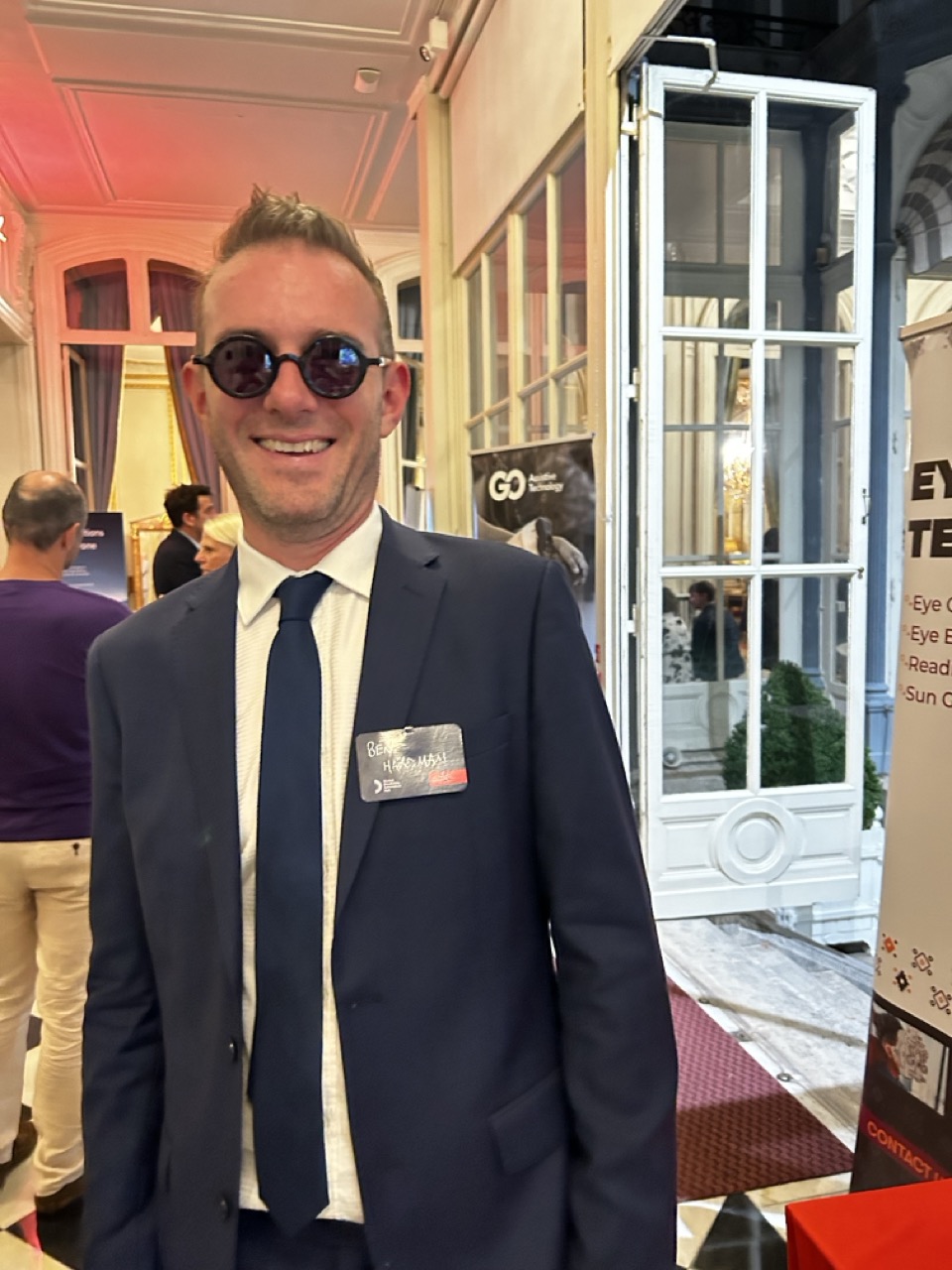
Ben Hardman during the #BeyondSportParis reception
Fast forward 12 years and I find myself at the Paris Paralympics, experiencing more jaw dropping performances at the vibrant Stade De France - this time as a part of the GDI Hub team. On the day I was at the stadium we witnessed an incredible T11 long jump world record by Di Dongdong, and David ‘WierWolf’ Wier win the T54 5000m heat 28 years after his first Paralympic appearance in 1996 in Atlanta. I was also privileged to hear the brilliant April Holmes talk about her life and career as a Paralympian, her experiences of being an entrepreneur, and leading a foundation assisting people with disabilities to find scholarships.
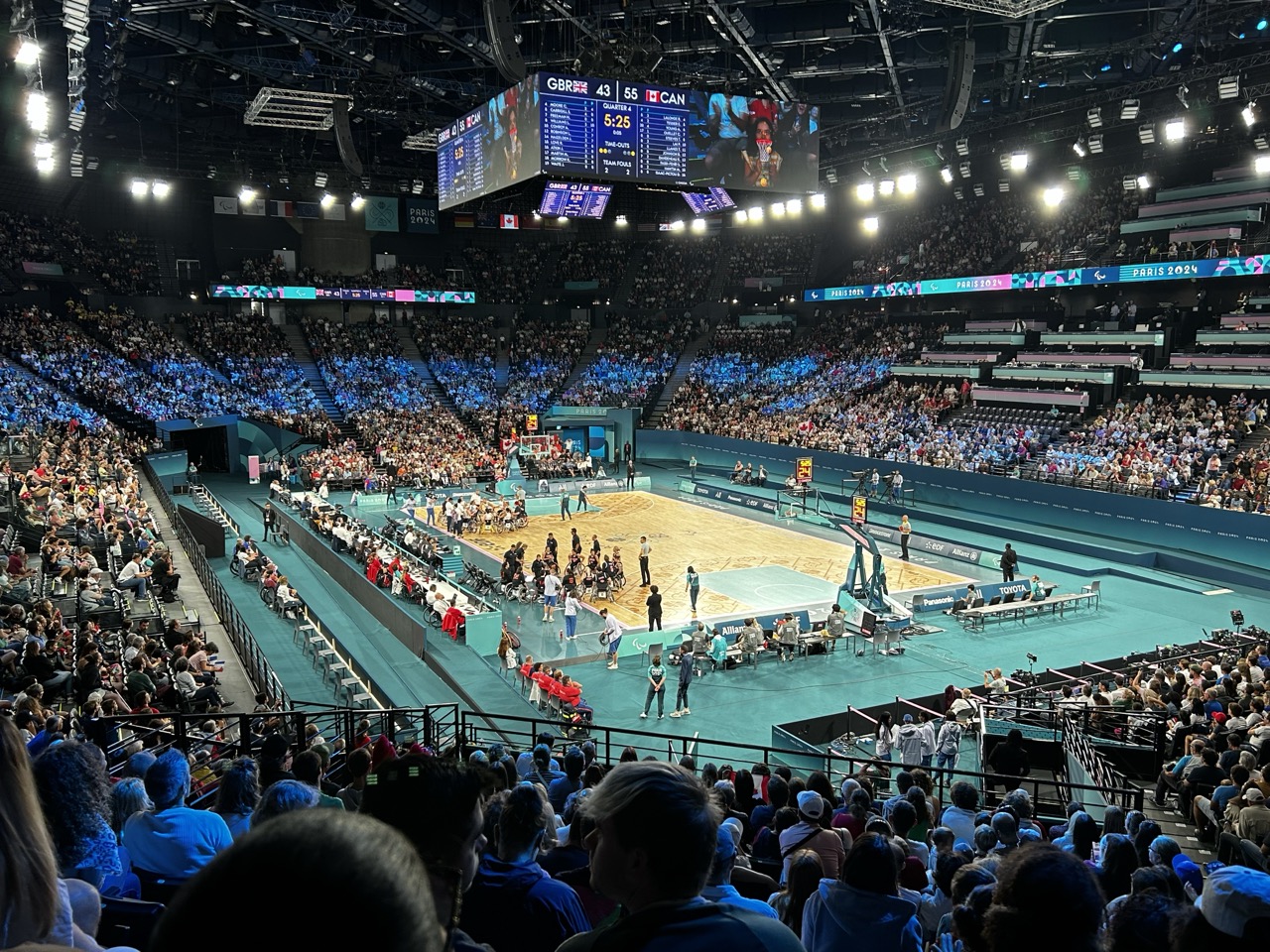
An image of the Bercy Arena during the Great Britain and Canada wheelchair basketball game
Despite the epic performances and great vibes, I was still left with a strange feeling when I left Paris. The reality of getting around Paris is dominated by the Metro, the busiest public transportation network of its kind in Europe - moving 4 million people around Paris every day. It was opened in 1900 and now has 320 stations connected by 16 lines and is an exemplar of efficiency. Unfortunately, less than 1 in 10 of those stations are accessible, and only one line is fully accessible for wheelchair users. There is an obvious reason why Paris didn’t prioritise accessibility - a €20B, 20year reason. They did however prioritise an accessible bus service instead, and the taxi services such as D7 and Uber did offer good alternatives.
As person without disability, I had a distinct advantage in getting from A to B - hopping on and off the Metro to get to Stade de France was a good value, seamless experience. Line 14 is the only fully accessible line on the Metro, and happened to be ideal for our route to and from Stade de France, but a lift being out of service on that day still meant my wheelchair using friend had no other choice but to opt for an accessible cab, which on that evening turned out to be a 2-hour ordeal.
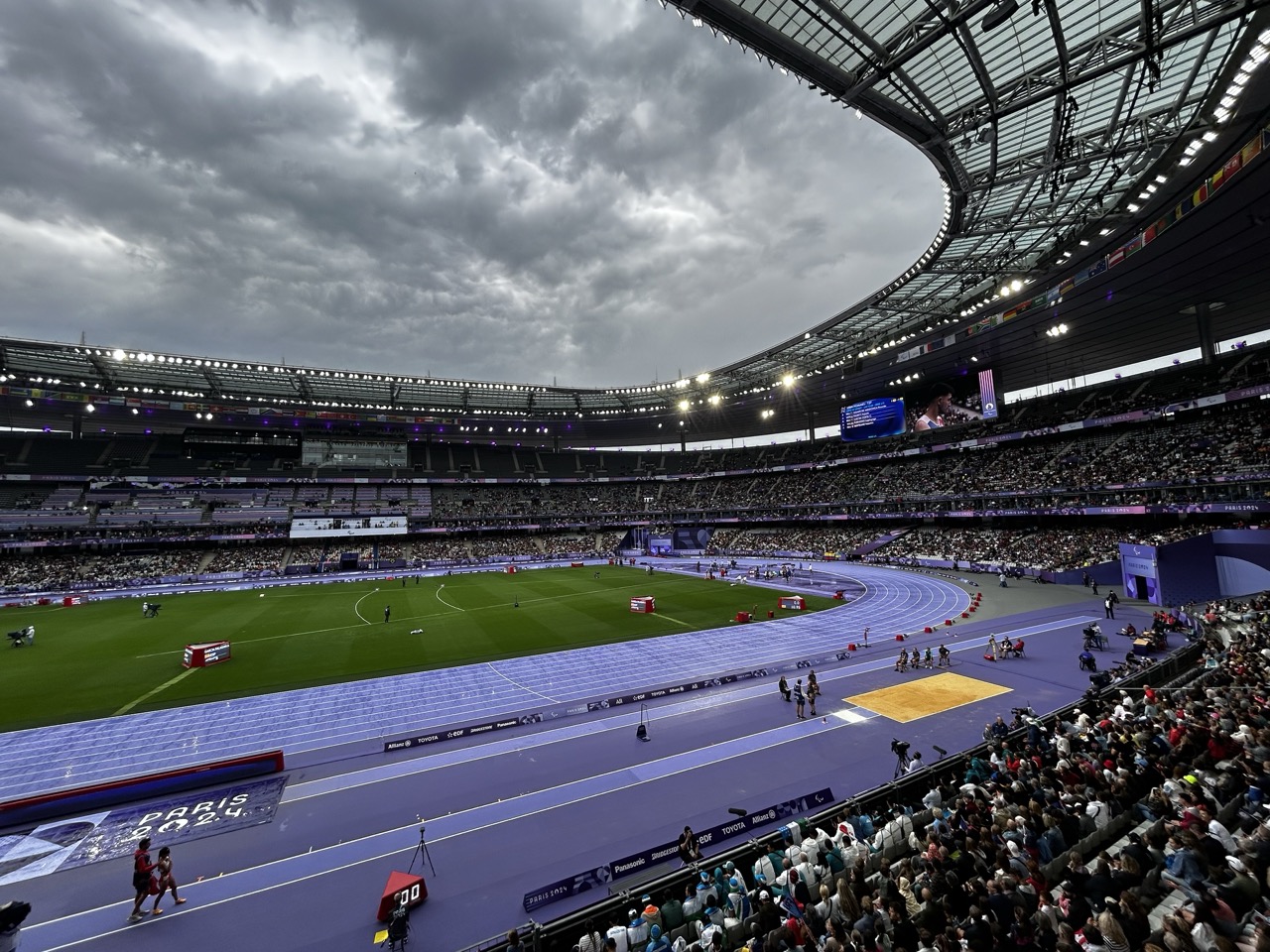
An image of Stade de France during the paralympic games
A chain is only as strong as its weakest link. This isn’t to say that Paris hasn’t done an amazing job in many other respects (all sports venues were fully accessible) it just highlights the huge and inescapable challenges in upgrading a legacy public transportation system for the modern day - requiring the retrofit of other arguably less-convenient alternatives.
When the dust settles on the Paris Paralympics, we’ll pick over great and the good performances inside and outside of the stadium, we’ll reflect on the legacy of the Paris 2024 Paralympics, and the trajectory of progress in accessibility and inclusion for persons with disability.
